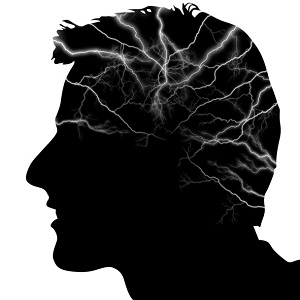 Electroconvulsive therapy, sometimes called shock treatment, has been the subject of controversy for generations. Decades ago, ECT was sometimes administered involuntarily, but current ECT treatments are voluntary and much safer. ECT is one of the most effective treatments for treatment-resistant depression, but its results are unpredictable and the side effects can be troubling. Some people, for example, experience long-term memory loss after undergoing ECT.
Electroconvulsive therapy, sometimes called shock treatment, has been the subject of controversy for generations. Decades ago, ECT was sometimes administered involuntarily, but current ECT treatments are voluntary and much safer. ECT is one of the most effective treatments for treatment-resistant depression, but its results are unpredictable and the side effects can be troubling. Some people, for example, experience long-term memory loss after undergoing ECT.
Fortunately, if you’re experiencing treatment-resistant depression, ECT is only the most popular option, not the only one. Something as simple as a new therapist or medication could make a big difference, and if those don’t work, there are several other ways to compel your brain to stop making you feel depressed.
New Treatment Plan
ECT and treatments like it are therapies of last resort. If you’ve tried only one medication or therapist, it’s not time to give up just yet. Instead, try modifying your treatment plan or treatment team. If you’re doing interpersonal therapy, for example, you might try switching to a therapist who specializes in cognitive behavioral therapy. If your medication isn’t working or the side effects are too much to tolerate, it’s time to switch to something else. Educate yourself before you choose a treatment team, and ensure that the methods your treatment team is using have been proven effective.
Vagus Nerve Stimulation
A vagus nerve stimulator is a lot like a pacemaker for your brain. The device has to be surgically implanted, and uses tiny electrical shocks to stimulate your vagus nerve. This treatment has been used for years in people with epilepsy, and some doctors are now using it in people with depression. Studies are inconclusive about its effectiveness, but if you want to avoid ECT, VNS can be a less frightening option.
Transcranial Magnetic Stimulation
Transcranial magnetic stimulation uses an electrical coil to produce electrical activity in a targeted area of the brain. The effects are similar to ECT because TMS electrically stimulates the brain, but preliminary studies indicate that there might be fewer side effects with TMS. However, the Food and Drug Administration advised against the marketing of a TMS device in 2007, arguing that it had not been proven effective.
Experimental Treatments
Experimental treatments are not currently available or are available only to those participating in treatment studies. However, in a few years, some of these treatments might be available to the general public:
- Some studies have indicated that ketamine—a veterinary tranquilizer that is sometimes used recreationally—may help alleviate symptoms of depression and some other mental health conditions.
- Magnetic seizure therapy is similar to ECT because it induces a seizure in the brain. It does not, however, require an electric current to be administered directly to the brain.
- Deep brain stimulation has shown promise in the treatment of neurological conditions such as Parkinson’s. Much like vagus nerve stimulation, deep brain stimulation works by implanting a device in the brain that sends electrical impulses to areas of the brain that affect mood.
References:
- Brief summary from the neurological devices panel meeting. (2007, January 26). U.S. Food and Drug Administration. Retrieved from http://www.fda.gov/AdvisoryCommittees/CommitteesMeetingMaterials/MedicalDevices/MedicalDevicesAdvisoryCommittee/NeurologicalDevicesPanel/ucm124779.htm
- Hampton, T. (2006). Ketamine for depression. JAMA: The Journal of the American Medical Association, 296(12), 1458-1458. doi: 10.1001/jama.296.12.1458-a
- Mayo Clinic Staff. (2011, August 23). Treatment-resistant depression. Mayo Clinic. Retrieved from http://www.mayoclinic.com/health/treatment-resistant-depression/DN00016
- Treatment-resistant depression. (n.d.). WebMD. Retrieved from http://www.webmd.com/depression/guide/treatment-resistant-depression-what-is-treatment-resistant-depression

The preceding article was solely written by the author named above. Any views and opinions expressed are not necessarily shared by GoodTherapy.org. Questions or concerns about the preceding article can be directed to the author or posted as a comment below.

 Recovery from Depression: A Road Map
Recovery from Depression: A Road Map Perspective and Humility: Reaching Happiness Through the Glass Wall
Perspective and Humility: Reaching Happiness Through the Glass Wall 5 Things That Help When I’m Depressed
5 Things That Help When I’m Depressed

Please fill out all required fields to submit your message.
Invalid Email Address.
Please confirm that you are human.
Leave a Comment
By commenting you acknowledge acceptance of GoodTherapy.org's Terms and Conditions of Use.